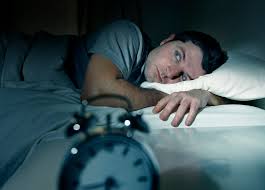Insomnia
Insomnia occurs when an individual experiences difficulty initiating and/or maintaining sleep, and it is more common among the elderly and in women. Most people, however will experience insomnia at some time in their life, as it can be triggered from common everyday stresses including anxiety, pain, alcohol, medication, shift-work, stimulant drinks such as coffee, and noise or uncomfortable temperatures.
Is Insomnia Common?
Even short-term insomnia affects around 30% of adults at some time in their life and an Australian population survey has shown that 13%–33% of the adult population have regular difficulty either getting to, or staying asleep.
Health Effects of Insomnia
Insomnia is one of the most common medical problems reported to health professionals. Research indicates that insomnia may also be secondary to other sleep-disorders, such as sleep apnoea, restless legs syndrome and periodic limb movement disorder. Additionally, chronic insomnia can have a negative impact on your health, by increasing your risk of Seasonal affective disorder (SAD) and high blood pressure, and it can also lower your quality of life. In fact, total sleep depravation for more than 10 days can have deadly consequences!
Chronic Sleep-deprivation
Symptoms of chronic sleep-deprivation manifest when an Individual regularly does not achieve enough sleep (usually 7 and 8 hours per night). This interferes with good health and optimal brain function. Unfortunately, sleep deprivation is also a common and dangerous entity in today’s modern society.
Serotonin Syndrome
Serotonin is the main brain chemical responsible for making us feel happy, relaxed, and self-confident. Some 90% of our serotonin supply is also found in the digestive tract and in blood platelets. Serotonin is one of the most important brain chemicals, or neurotransmitters, for regulating the sleep/wake cycle. When serotonin levels are not normal, sleep disturbances and other issues can result, including SAD and chronic fatigue syndrome. Low serotonin levels result in sleep disruption and sleep disorders, including insomnia. It may also be a factor in sleep aponea, a condition that causes abnormal breathing patterns such as snoring during sleep.
How Negative Ions can help
Negative ions are odorless, tasteless, and invisible molecules that we inhale in abundance in certain environments. Think mountains, waterfalls, and beaches. Once they reach our bloodstream, negative ions are believed to produce biochemical reactions that increase levels of the mood chemical serotonin, helping to alleviate SAD, relieve stress, and boost our daytime energy. Generally speaking, negative ions increase the flow of oxygen to the brain; resulting in higher alertness, decreased drowsiness, and more mental energy throughout the day and quality sleep at night. With quality sleep, cells are repaired, the immune system is strengthened and mental functions are sharpened.
Quality sleep can also help reduce the occurrence of common pains such as backache, and increase your resistance to illness. Study of negative ions has shown to help people sleep better by regulating the production of Serotonin in the brain. Negative ions play a role in causing blood flow to increase through dilation of the capillaries, thus causing greater oxygenation to occur. The oxygen level in hemoglobin is increased, helping to maintain good health and well being.
Conclusion
Insomnia is complex and usually chronic by the time the individual consults a health practitioner, with cognitive, behavioural and social factors involved in its maintenance. Whilst simple instructions, such as avoiding stress, or short-term use of hypnotics show little improvement, decades of scientific research conducted from all around the world indicate the positive health benefits of negative ions for those that suffer from insomnia and other sleep disorders.


Recent Comments